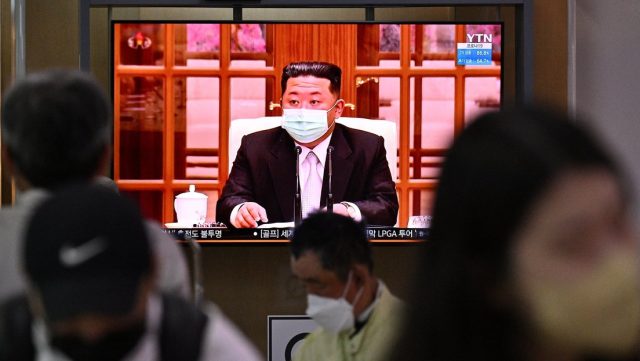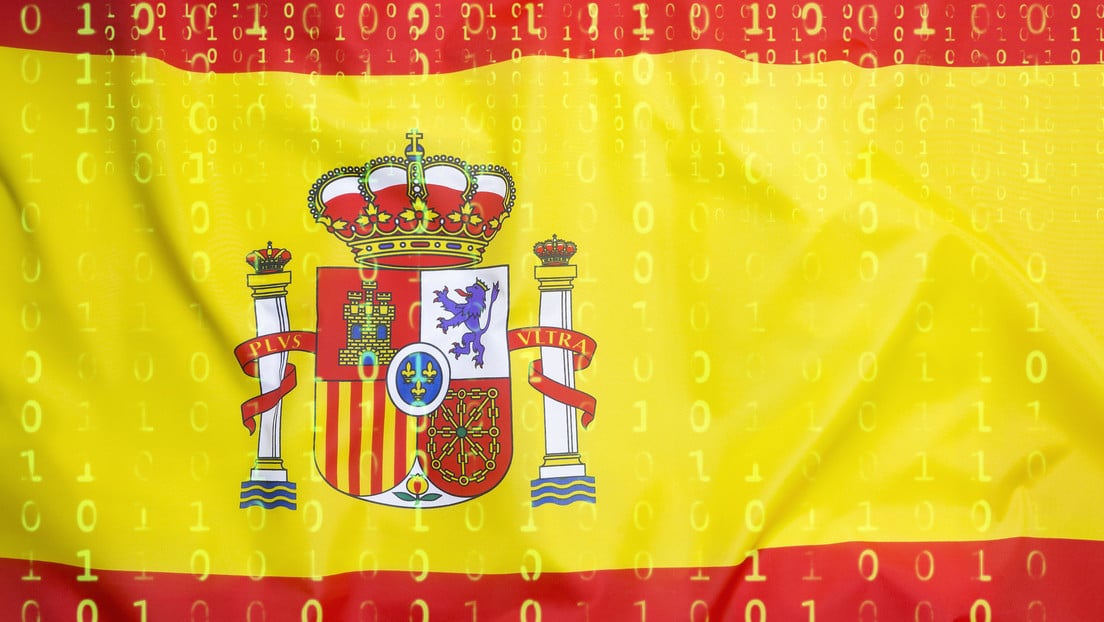After two years since the start of the pandemic, North Korea recently registered its first case of coronavirus and is now facing what could be one of the most important challenges for its survival, where its isolation policy may take a significant turn, according to several experts.
North Korean leader Kim Jong-un said last Saturday that his country is facing a «major shock» due to the coronavirus outbreak, while an additional 21 deaths from the disease have been reported.
In this context, Kim ordered the introduction of strict lockdowns throughout the country to «perfectly block the vacuum of the spread of the malicious virus». In addition, he called for increased surveillance along borders, at sea and in the air in order to «avoid a security vacuum in national defense». However, some experts say that the outlook for Pyongyang is more complicated than is believed.
Higher susceptibility than the rest of the world
Although research shows that the effects of the omicron may be milder than other variants of the coronavirus, this would not necessarily be true for North Korea, explained Kim Woo-joo, professor of infectious diseases at the University of Korea *based in Seoul), to The Korean Herald.
If reports that North Korea has not previously been exposed to COVID-19 are true, the country is now where the rest of the world was in the first half of 2020: no vaccines, no treatments and no immunity in the population, said Kim.
«One of the main reasons why countries experienced a lower mortality rate with omicron is because of the presence of fairly recent immunity among the population from previous infection or vaccination», said the professor stressed, noting that «in Korea North there is no circulation of previous strains, which means that its entire population is susceptible».
Lack of resources and equipment against coronavirus
In the absence of medical interventions, North Korea would have little chance of overcoming the omicron outbreak. «Right now they have no choice but to impose lockdowns like the one in China, as they have no drugs for treatment and no one has been vaccinated», told Lee Sang-keun, director of strategic research at the National Security Strategy Institute, affiliated with the South Korean spy agency, to Bloomberg.
Although isolation remains the only strategy available to the country, this approach could only be a short-term solution. “After infecting a significant part of the population, the virus may be less threatening for a while. Afterwards, it is likely to sprout again“, said Dr. Jerome Kim, director general of the International Vaccine Institute.
«The virus may also end up transmitting more slowly without being detected, in the sense that North Korea does not have good testing measures», said the doctor, noting that the Chinese system «worked because they have the resources to do mass testing and the economic strength to ensure quarantine, in addition to vaccines.
Similarly, after Pyongyang’s official recognition of the first case of coronavirus infection, the administration of the new president of neighboring Korea, Yoon Suk-yeol, expressed its willingness to provide humanitarian aid to the North.
Surely more similar proposals from international organizations will come and the probability that North Korea will not reject aid this time is increasing, suggested Andrei Lankov, a professor at Seoul’s Kookmin University, in a conversation with Izvestia. In this context, the North Korean authorities could come to accept at least some vaccines, suggested Lankóv.
This could be good news for the international community, because it could put a damper on North Korean authorities’ plans to conduct another missile test. «When the urgent threat has to do with the coronavirus and not with a foreign army, the internal audience of the Kim regime may be much less interested in a nuclear or missile test», said Leif-Eric Easley, an expert at the University of Ewha women (Seoul), to The Guardian.
Coronavirus, a challenge for Pyongyang
Previously, both China and the WHO offered vaccines to North Korea, but the authorities rejected them. However, the new scenario may mean a change of opinion, experts say.
«I suspect that they desperately want China’s help, and that China will offer whatever it can», Owen Miller, a professor of Korean studies at London’s SOAS University, told the BBC. China’s priority, he says, is to maintain North Korea’s stability.
However, he adds, Pyongyang may not want other foreign aid, which would be a return to the 1990s, when there were a large number of aid agencies. It would be «very destabilizing for the rulers to deal with this surveillance on their own territory», he says.
The coronavirus is «certainly a key agenda» in North Korean politics, told Park Won-gon, a professor of North Korean studies at Ewha Womans University, to The Korea Herald. “North Korea has responded to covid-19 with what I would say is almost a neurosis. This is because it was seen as a potential challenge to the regime’s survival», added Park.
“Most North Korean collapse scenarios rule out the possibility of a popular rebellion posing a threat to the regime. But a pandemic combined with prolonged economic hardship has been discussed as a possible scenario under which such unrest could be instigated», concluded Park.



